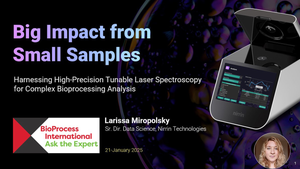
There are now 60 different centers certified to administer CAR-T therapy Yescarta says Gilead Sciences says, which plans to add more as further indications are approved.
In October 2017, the US Food and Drug Administration (FDA) approved the second chimeric antigen receptor T-cell therapy in the form of Yescarta (axicabtagene ciloleucel), developed by Kite which had recently been acquire by Gilead Sciences for $11.9 billion (€10.2 billion).
Yescarta is made by isolating peripheral blood mononuclear cells – including T-cells – from the patient’s white blood cells, and then sending them to Kite’s manufacturing facilities for proliferation and transduction with a retroviral vector. Once the CAR sequence is introduced into the patient’s T cells, they are grown in cell culture bags, washed and sent back to a clinical center to be administered back into the patient.

T cell attacking a cancer cell. Image: iStock/Meletios Verras
Kite’s 43,500 ft2 manufacturing plant in El Segundo, California has capacity to treat up to 5,000 patients a year. As demand for Yescarta grows, Gilead has had to ramp up the number of certified administration centers.
“In terms of the sales trajectory, the first part of launching Yescarta has been to certify all these different centers,” Gilead’s CEO John Milligan said at the Morgan Stanley 16th Annual Global Healthcare Conference last month. “This was a market that had never been tested before as a commercial market and there is quite a bit of work that went into getting centers up and running.”
Currently, he told investors, there are 60 centers that have been certified and are able to prescribe Yescarta to treat hematologic cancers (Yescarta is approved to treat patients with relapsed or refractory diffuse large B-cell lymphoma and primary mediastinal large B-cell lymphoma). But as further indications get approved, the number of centers will have to increase, he added.
The firm is involved in Phase IIb studies for patients with refractory large B-cell lymphoma after conventional therapy failure for a proposes label expansion, while studies are currently underway in indolent mantle cell lymphoma, BCMA and myeloma.
90 centers
While Milligan did not divulge a target number of administration centers, a 10-Q filing submitted to the SEC last year puts a target of as many as 90 centers.
“To ensure that any apheresis center is prepared to ship cells to our manufacturing facilities, we plan to conduct quality certifications of each apheresis center,” the filing states. “Accordingly, we plan to target 70-90 key transplant and lymphoma centers.”
And speaking at the Cell Therapy Manufacturing & Gene Therapy Congress in Amsterdam last December, Prentice Curry, VP of quality and compliance at Kite said the firm spends a great deal of time with the hospitals and clinics involved.
“They need to understand the therapies, they need to understand how to administer the therapies, they need to understand even basic things like the control of the frozen bag of cells,” she told attendees.
About the Author
You May Also Like

schedl_b_and_w.jpg?width=100&auto=webp&quality=80&disable=upscale)
schedl_b_and_w.jpg?width=400&auto=webp&quality=80&disable=upscale)





